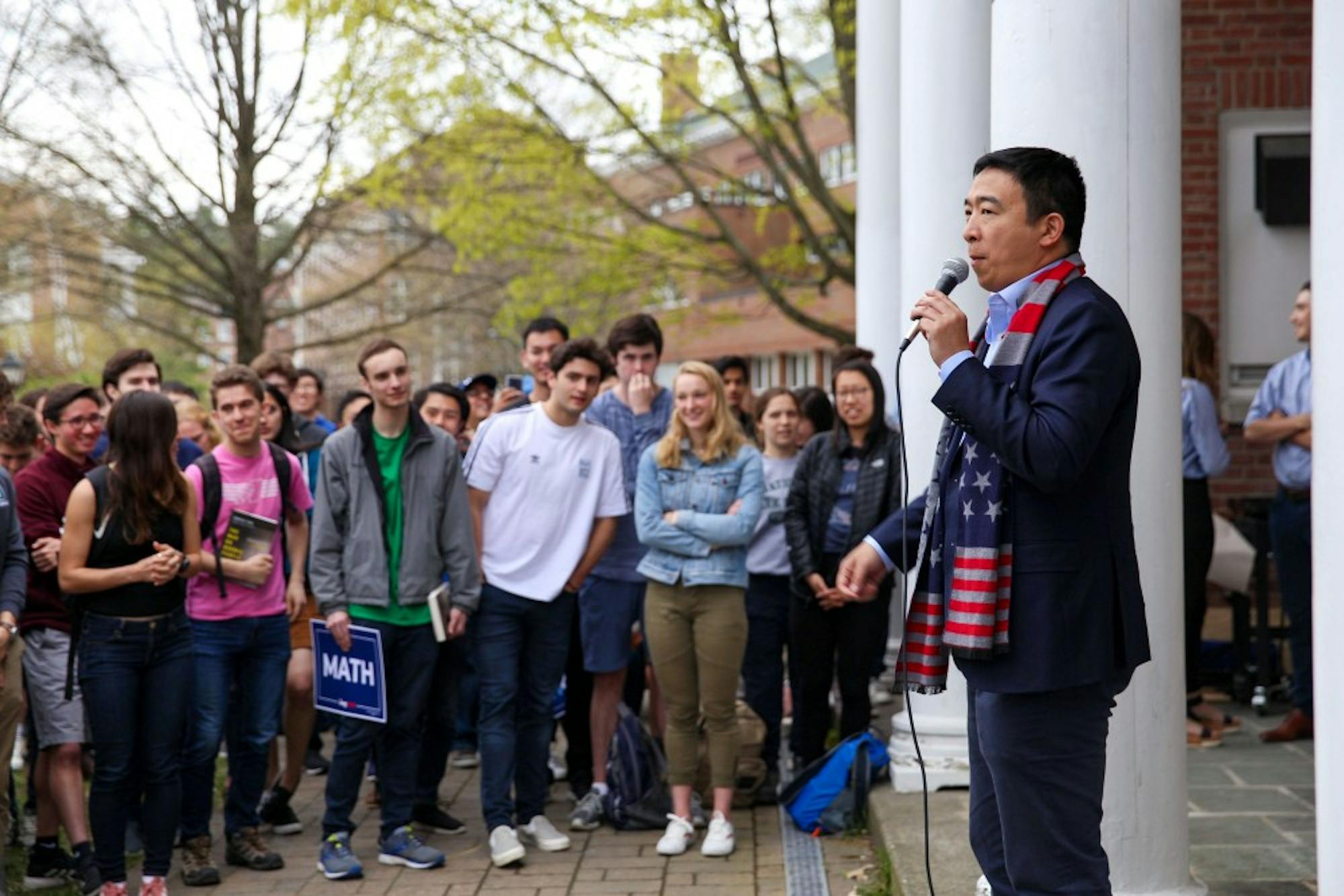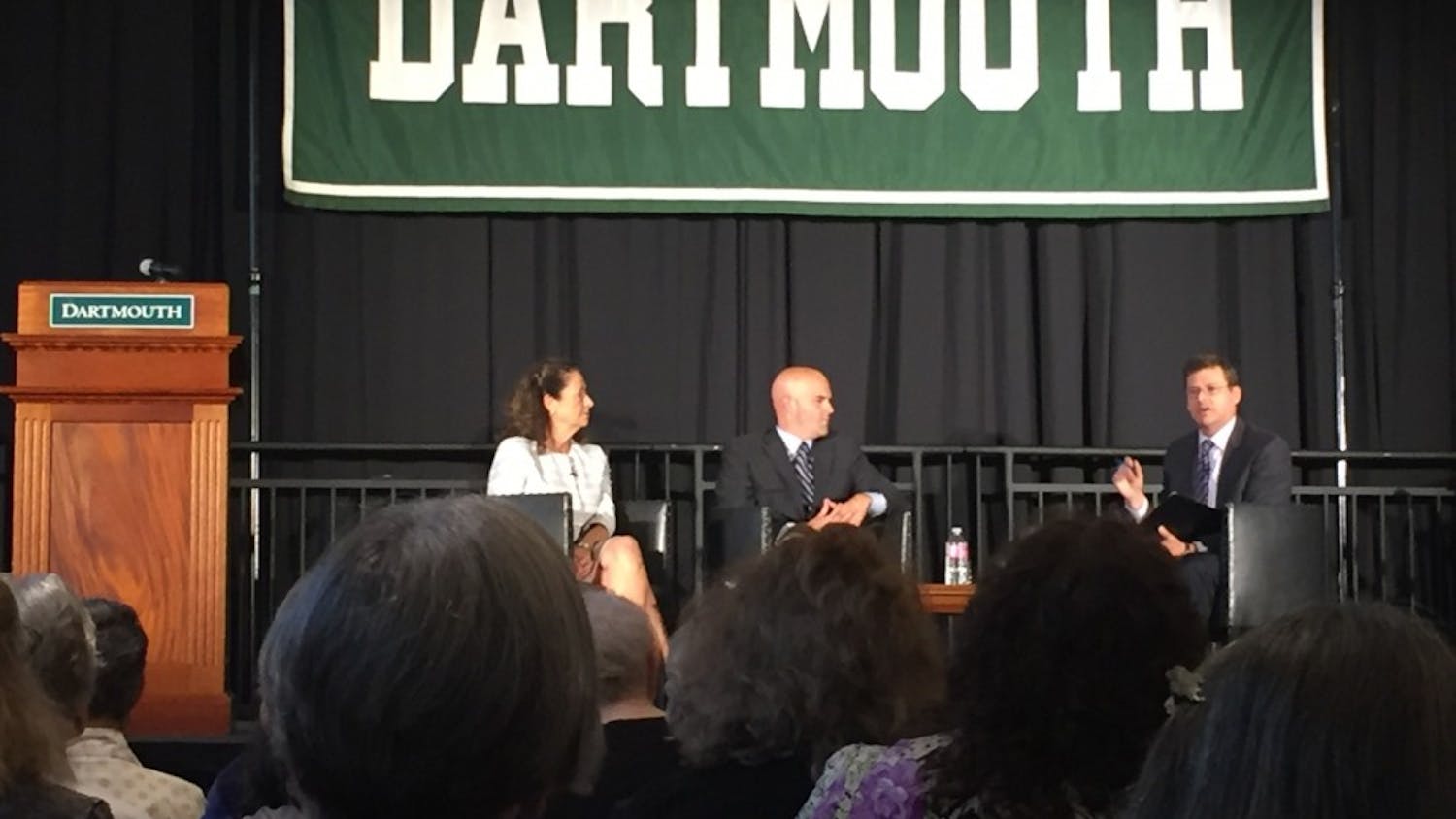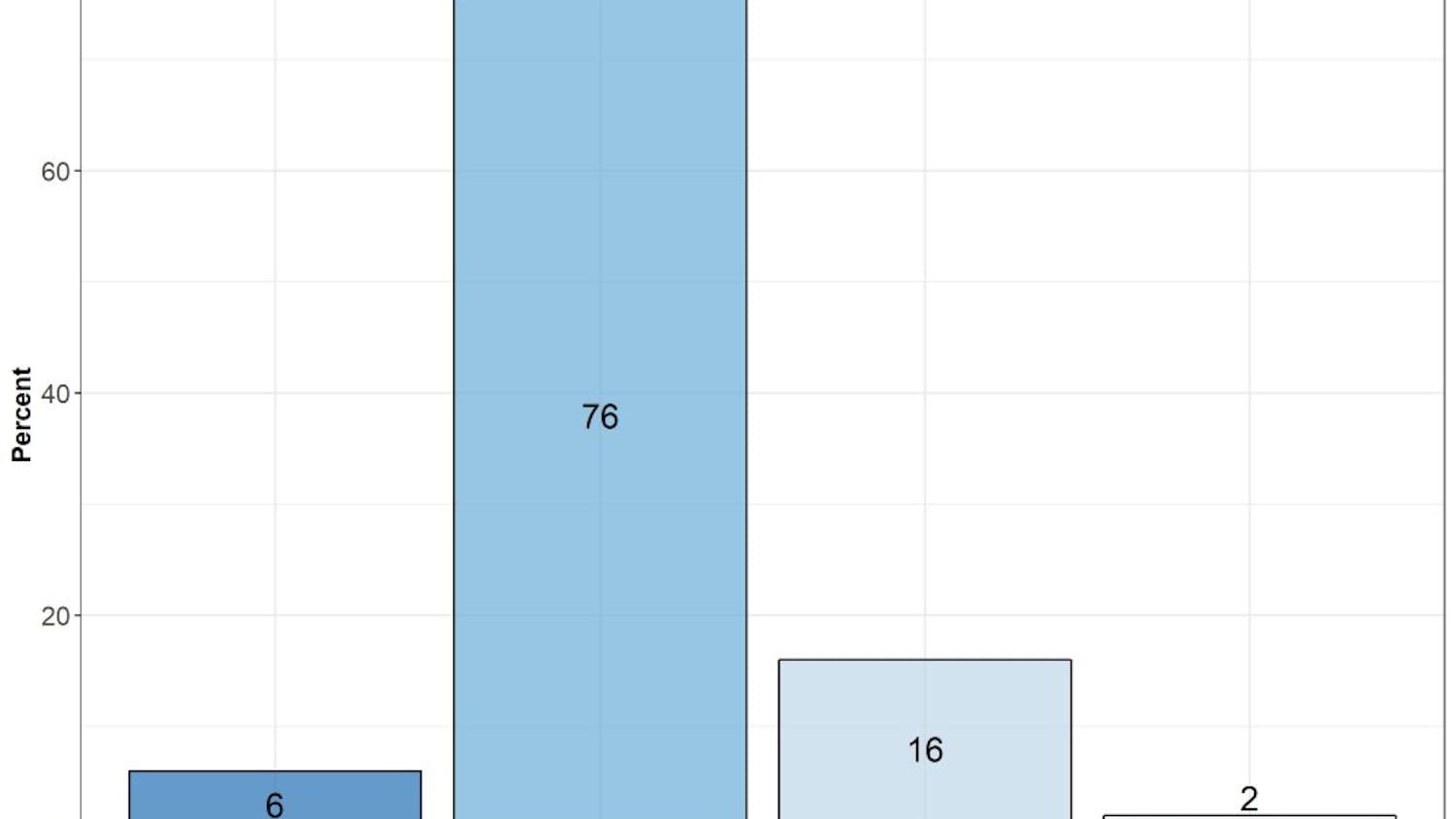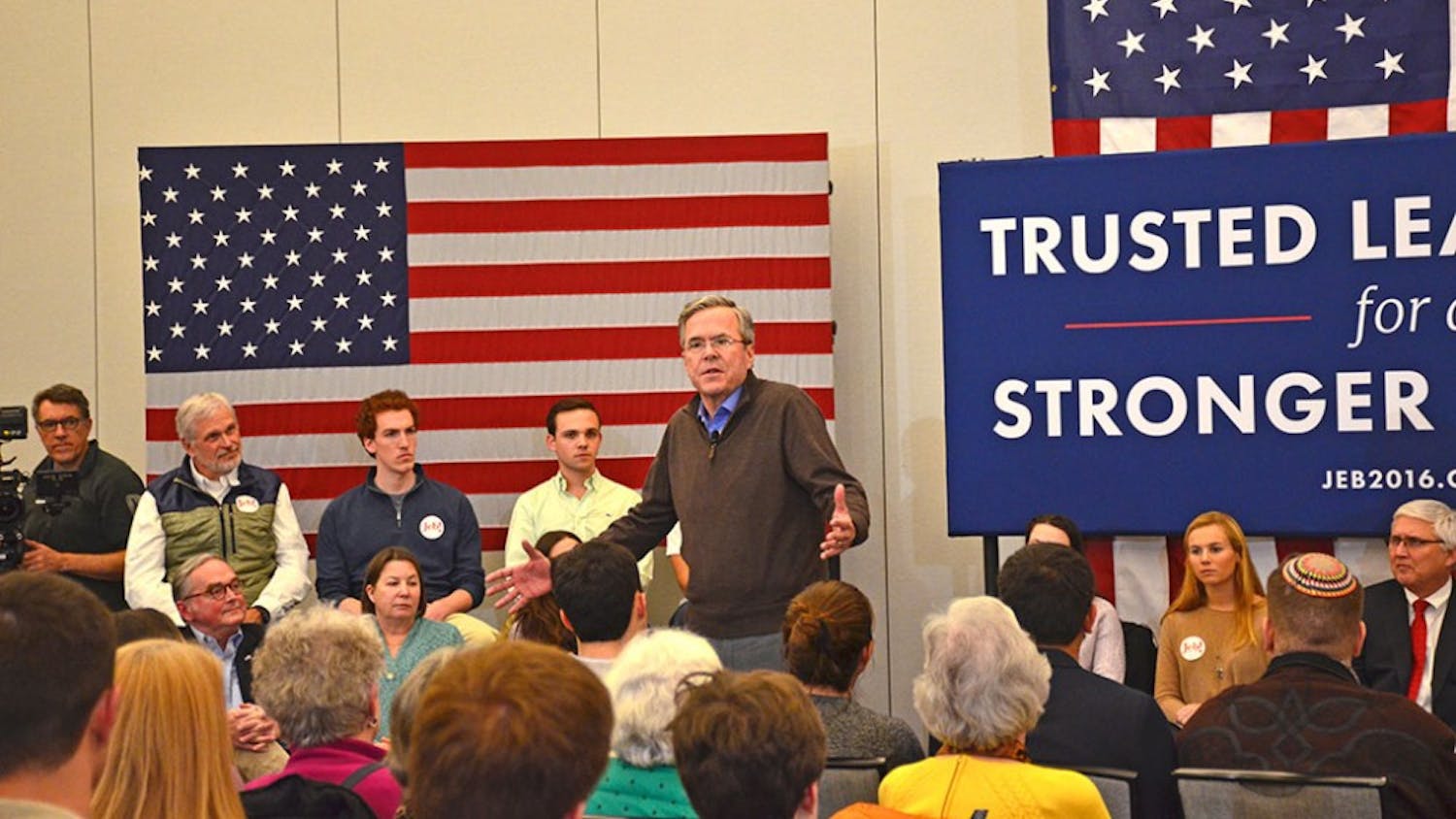“If you’re here today, you’ve heard that there’s an Asian man running for president who wants to give everyone $1,000 a month.”
So spoke Democratic presidential candidate Andrew Yang from the lawn of Beta Alpha Omega fraternity on Thursday evening, drawing a crowd of approximately 100 students and community members. His appearance, sponsored by the Dartmouth College Democrats, focused on themes of rising inequality and the loss of low-skilled jobs, issues that are central to his campaign.
Yang is one of 21 Democrats currently seeking the party’s nomination. The 44-year-old entrepreneur has centered his campaign around three issues: a universal basic income of $12,000 per year, Medicare for All and what he terms “human-centered capitalism,” which places human welfare as the primary goal of a market-based economy. While his polling currently averages less than one percent nationwide, Yang has nevertheless attracted a vocal, if small, group of supporters dubbed the “Yang Gang” on Reddit and other social media sites.
For the first half of the event, Yang outlined his goals and the rationales behind them. He spoke about the rise of automation, which he said has already decimated the manufacturing industry and threatens to decimate the service, trucking and retail industries, among others.
“We’re in the midst of the greatest economic and technological transformation in the history of our country,” Yang said. “And Donald Trump became president because we’d automated away four million manufacturing jobs in Michigan, Ohio, Pennsylvania, Wisconsin, Missouri [and] Iowa.”
Re-training workers in failing industries is not sufficient to solve the problem of automation, Yang said. He pointed to the manufacturing industry, claiming that around half of the workers who have lost their jobs to automation did not re-enter the workforce, and that a significant portion of that population ended up using disability benefits or became suicidal. In spite of this, he asserted that current politicians in Washington, D.C. have not provided adequate answers to the crisis.
Yang’s proposed solution is a universal basic income, dubbed the Freedom Dividend, which would provide $1,000 a month to all Americans. His campaign website says the program would be funded by a value-added tax, as well as by increased economic growth and reduced spending on other services.
Yang believes the Freedom Dividend would allow people to perform work they find meaningful and cushion the country against the threat of automation. He spoke about the importance of eliminating structural barriers to collecting tax revenues from large technology companies. He also said that he would seek to promote different measures of national well-being, rather than the country’s Gross Domestic Product, that are more relevant to the lives of everyday Americans, such as measures of wealth inequality or education levels.
“It’s our job to create a society that actually works for Americans,” Yang said.
Following his speech, Yang fielded questions from the audience. Multiple students asked about Yang’s perspective on climate change, with one student expressing surprise that the topic is not higher on Yang’s list of campaign issues.
Yang said that he takes the issue of climate change very seriously — in an interview with The Dartmouth following the event, he described it as the largest issue facing the next generation. To the audience, he spoke in favor of rejoining the Paris Agreement, implementing a carbon fee and dividend, and investing “hundreds of billions of dollars” to develop sustainable infrastructure. He also emphasized the connection between economic insecurity and climate change, positing that people cannot afford to worry about climate change if they also cannot afford to pay their bills.
One student asked Yang how he plans to deal with the most popular Democratic candidates, such as former vice president Joe Biden and Sen. Bernie Sanders (I-VT). Yang said that as more people begin to pay attention to the primaries, his name recognition will only grow, which he said will allow him to attract more supporters because of his campaign positions.
Questioned on how he would convince Congress to approve the Freedom Dividend, Yang said that his election as president would serve as a kind of national mandate that Congress would not seek to oppose. He also cited bipartisan support for his proposal, based on endorsements for universal basic income from conservative economist Milton Friedman and the state of Alaska, which pays its citizens a regular dividend from its oil revenues.
In response to another question about how he would appeal to black voters, Yang said that he believes the Freedom Dividend would help him appeal to them, as the benefits of the program align with many black voters’ interests. He also cited Martin Luther King Jr.’s support of a universal basic income as a possible source of appeal.
In an interview with members of the press following the event, Yang spoke about how the Freedom Dividend would coexist with existing social services. While he acknowledged that over time, the Freedom Dividend might be able to replace the need for some of these programs, he pointed out that it would be disruptive and difficult to immediately replace social services with universal basic income.
Thomas DeSantis ’19 said that he enjoyed the event more than he thought he would. He noted that many of Yang’s policies make intuitive sense and pointed out that while Yang positions himself as one of the more intellectual candidates in the race, his style is also quite conversational and casual.
Aidan Low ’21 said that Yang spoke eloquently and that he believed Yang’s focus on the threat of automation on jobs was a more practical focus than the concerns voiced by many other Democratic candidates.




